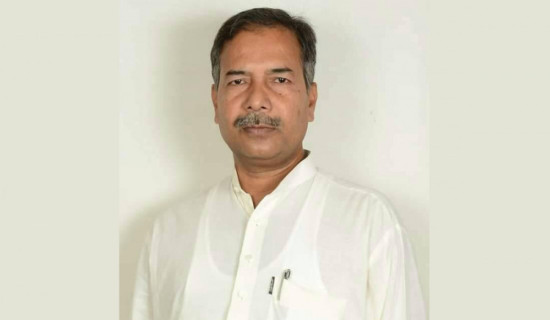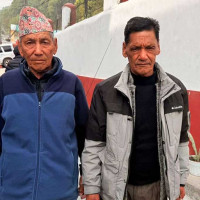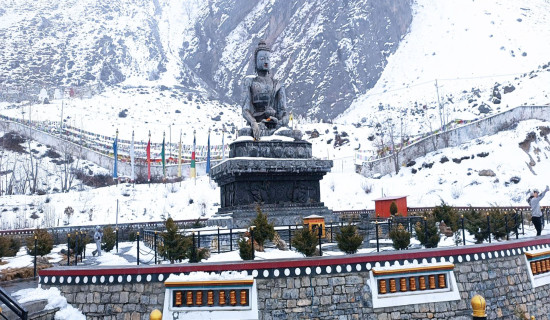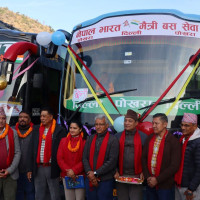- Wednesday, 4 February 2026
Trade Union Rights Under Growing Threat
Neoliberal capitalism, which has been adopted globally since the 1990s, is now in crisis. Unemployment, poverty, income inequality, and the concentration of wealth in a limited number of people are increasing owing to neoliberalism. It is undermining workers' rights and achievements. In addition, social inequalities are dramatically widening. This is further contributing to environmental degradation and the reckless overexploitation of natural resources.
Global geopolitical and economic rivalries have directly threatened world peace and security, even to the point of nuclear annihilation. Wars, interventions, sanctions, and blockades continue and have intensified. Today, some countries are moving towards a war economy. This is their priority, as it ensures the expansion of the geopolitical power of multinational monopolies. The United States, the European Union, and other countries are increasing their military spending.
Multipolarity
The world is moving towards multipolarity, with the campaign for peace, economic development, and democracy. The creation of BRICS offers an alternative to the unipolarity that developed under the leadership of the US after the collapse of the Soviet Union. The Russia-Ukraine war has also increased the differences between powerful countries. Similarly, 150 countries have joined China's Belt and Road Initiative (BRI), covering 75 per cent of the world's population. Considered the largest development project in human history, the BRI aims to connect countries by sea and land, promote production and trade, economic and social development, world peace, and maintain people-to-people relations.
The rights and freedom of trade unions are under threat. The rising cost of living and inflation have hit the poor, workers and pensioners. Temporary, contract, wage labour, outsourcing, and precarious employment are expanding in the labour sector. This poses challenges to workers' access to job security, career development, and social security benefits. War, conflict, and mercantile capitalism have triggered unemployment, uncertainty, and large-scale migration of people and refugee flows. In addition, there has been an increase in extreme labour exploitation by forcing workers to practice cheap labour. In addition, the populist and anti-labour legal provisions have significantly weakened collective bargaining powers. Contractualisation, privatisation of public enterprises, outsourcing, teleworking, and "service rent" are some of the harsh policies applied in the labour market.
Social security and large social service enterprises such as public education, health care, and water supply are being privatised. Similarly, the retirement age of workers is being arbitrarily increased. Thousands of people continue to be buried underground in mines operated in medieval conditions every day. Trains continue to collide due to the lack of old control systems. Factories have been closed due to mines, train accidents, floods, and trapped workers. Workers die or are injured every day due to fatigue and lack of concentration due to the constant intensity of work and the lack of accident prevention measures.
Despite the technological innovation, people's suffering has not come to an end. Providing safety and health facilities at work is seen by employers as an undesirable expense that reduces their profits. The encouraging thing is that workers have stood up to anti-labour policies and exploitation. Led by class-oriented trade unions, millions of workers around the world are choosing the path of struggle to defend their trade union, social and political rights.
Trade unions affiliated with the World Federation of Trade Unions (WFTU) are conducting large-scale mass struggles in France, Greece, Italy, Portugal, Cyprus, Turkey, Spain, Argentina, Brazil, India, Sri Lanka, Bangladesh, Indonesia, and many other countries. Such movements have gained huge support. As workers' resistance grows stronger and struggles become more widespread, so does the repression of trade unions and their leaders.
Labour struggle
On the other hand, attempts are made to manipulate the labour struggle, while the pro-capitalist yellow trade unions are trying to turn the trade union movement from a class-coordinated perspective. It is no coincidence that the International Trade Union Confederation (ITUC) worldwide and the European Trade Union Centre (ETUC) in Europe have intensified their attacks, aiming to limit the presence and influence of the World Federation of Trade Unions (WFTU) within the global trade union movement, exerting unnecessary pressure.
An important goal for the working class is to ensure the expansion of the presence and influence of progressive and socialist trade unions in all regions of the world. The new situation that has developed in the world is increasingly favourable for the working class. Therefore, the peaceful struggle for the rights of the working class should be geared towards dismantling all kinds of military alliances. In addition, the struggle to defend the right of the working class to choose its own path of economic and social development without interference, restrictions, blockades, and economic warfare must be carried forward.
(Khanal is a Presidential Council Member of World Federation of Trade Unions (WFTU) and President of CONEP Nepal.)
















